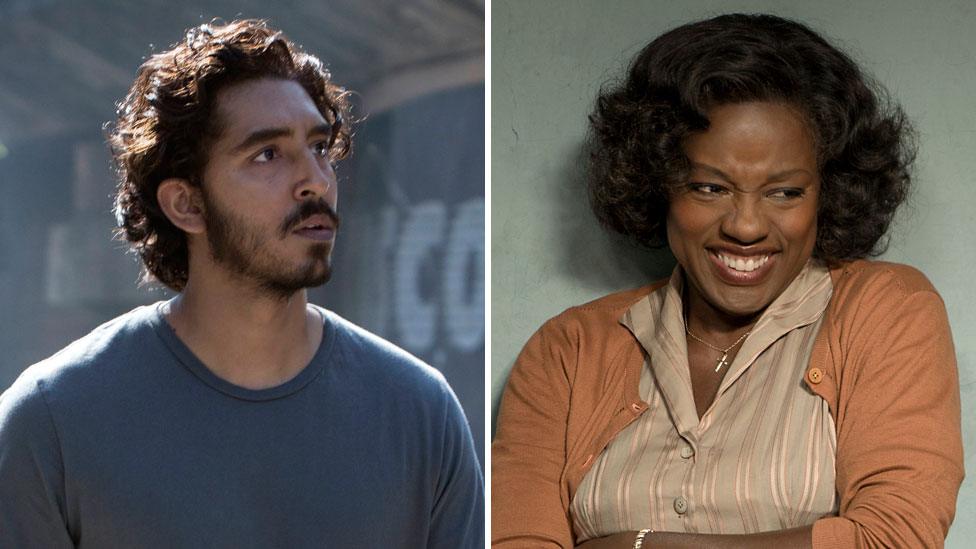Oscars: Only diverse films will be considered for best picture
- Published
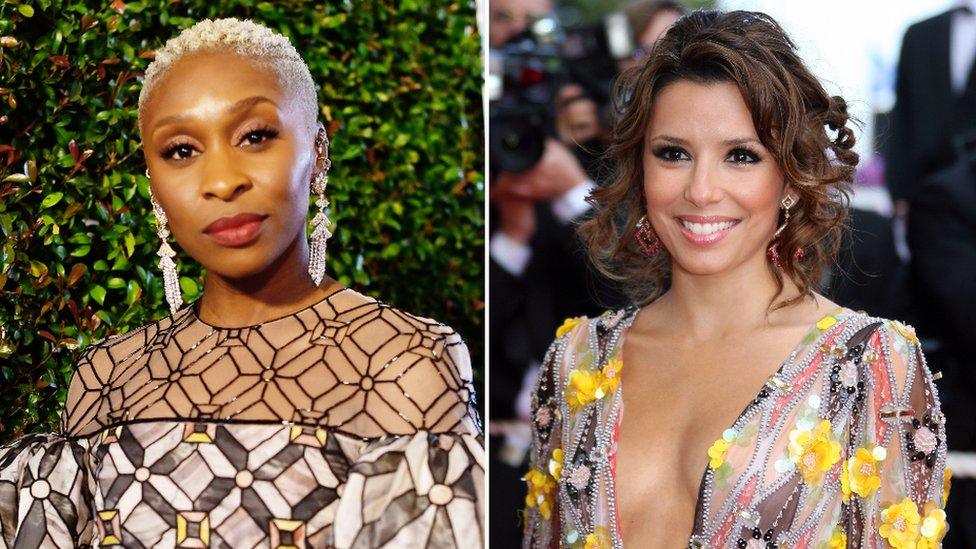
Cynthia Erivo and Eva Longoria are among the 819 new people invited to vote for the Oscars
Films hoping to compete for the best picture Oscar will have to meet certain criteria over diversity, the Academy of Motion Picture Arts and Sciences says.
The Academy set out four "standards" which it hopes will boost representation and inclusion both in front of and behind the camera.
For the 96th Oscars, in 2025, only films that have met at least two of the standards will qualify for the award.
The Oscars have been criticised for their lack of diversity.
The failure to nominate black or minority actors in 2016 led to a furious backlash, with film stars boycotting the ceremony and the growth of the #OscarsSoWhite movement.
It led to a promise from the Academy to double its female and Bame members by 2020.
The Academy recently invited 819 new members to vote for this year's Oscars, of whom 45% are women and 36% are non-white, and says it has now doubled the number of women members, external and tripled the number of people from under-represented ethnic and racial communities.
'Long-lasting, essential change'
In its latest announcement, the Academy said it was introducing eligibility requirements for the best picture award "to encourage equitable representation on and off screen in order to better reflect the diversity of the movie-going audience".
What's happened since the the #OscarsSoWhite controversy of 2015
It lists in detail the underrepresented groups - which include women, racial and ethnic groups, LGBTQ+ and people with disabilities.
It lays out the following areas where such groups need to be involved:
On-screen acting and storylines, "including at least one of the lead actors or significant supporting actors is from an underrepresented racial or ethnic group"
Creative leadership positions, departmental heads and crew composition
Paid apprenticeships, internships and training
Audience development, from publicity and marketing to distribution
These detailed requirements will only apply to films made in 2024 for the awards ceremony in 2025, and beyond. Until then, films from 2021 will be required to submit an Academy Inclusion Standards form.
"The aperture must widen to reflect our diverse global population in both the creation of motion pictures and in the audiences who connect with them," Academy President David Rubin and CEO Dawn Hudson said in a joint statement.
"The Academy is committed to playing a vital role in helping make this a reality. We believe these inclusion standards will be a catalyst for long-lasting, essential change in our industry."
In an interview published on Wednesday, Halle Berry expressed "heartbreak" that no black women had won the best actress Oscar since she became the first to do so in 2002.
"The morning after, I thought, 'Wow, I was chosen to open a door"," she told Variety, external. "And then, to have no one… I question, 'Was that an important moment, or was it just an important moment for me?'"

Do diversity standards work? A Bafta case study
By Ian Youngs, entertainment & arts reporter
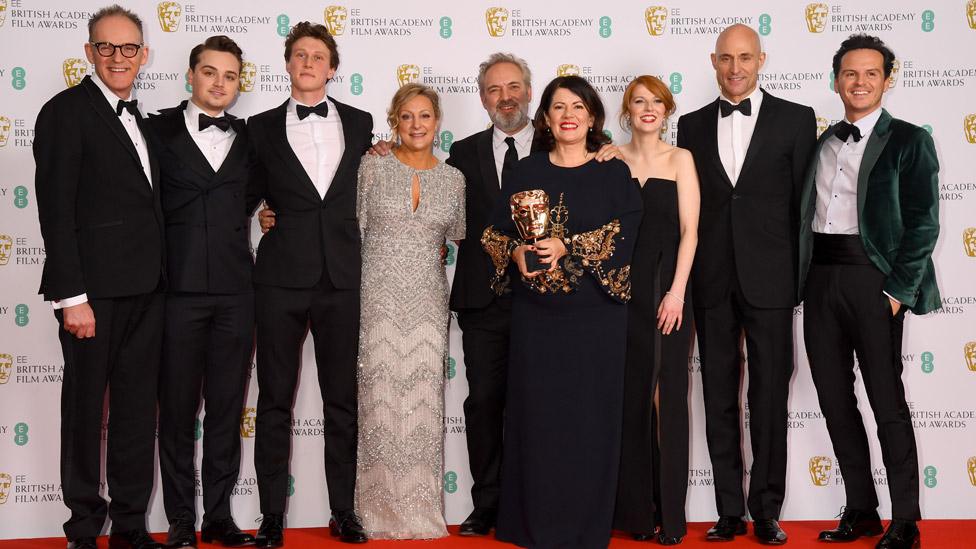
The cast and team behind 1917 with their Bafta for best British film
Last year, Bafta, the British equivalent of the Oscars, introduced similar criteria for two of its awards. Films would not be nominated for best British film or best British debut unless they met at least two of four "diversity standards".
Those standards cover on-screen talent and storylines; creative leadership, team or crew; training and opportunities; and underserved audiences.
However, that didn't prevent the nominees for best British film this year being dominated by stories predominantly about, made by, and starring white men.
The award was won by 1917, Sir Sam Mendes's epic that followed two soldiers during World War One. It qualified because it met the criteria for creative leadership (it had a female co-writer and two of the five producers were women) and training.
The other nominees included Rocketman, the Sir Elton John biopic, which qualified because it had a lead character from an under-represented group (presumably LGBT) and the storyline reflected that group; and because it targeted under-served audiences.
The Two Popes, starring Jonathan Pryce and Sir Anthony Hopkins as an ageing pair of pontiffs, was allowed to be nominated because its lead character(s), storylines and locations reflected under-represented group(s). The groups it reflected have not been specified, but religion and age are listed among the "characteristics" used to define under-represented groups. It also met the criteria relating to the creative leadership and team. It was directed by Brazilian Fernando Meirelles, written by New Zealand's Anthony McCarten, and one of the three producers was female.
Other films nominated for the award included Ken Loach's Newcastle-set working class drama Sorry We Missed You, which met three of the four diversity standards; and Mark Jenkin's low-budget Cornish fishing drama Bait, which met all four. The final nominee was the Syrian war documentary For Sama, which met three.
The diversity standards don't apply to the acting and directing honours - and Bafta found itself at the centre of an outcry this year after unveiling an all-white line-up for the acting awards, and an all-male line-up of directors.
On Wednesday, Bafta issued a statement saying it was "delighted that the Academy has today announced its new representation and inclusion standards". It said it would "continue to review and expand" its own standards every year.
Bafta has been carrying out a review of its membership, nominations and voting processes, although any changes have not yet been announced.
In a letter to members in June, incoming Bafta chair Krishnendu Majumdar said the 2020 nominations "showed we are a long way from where we want to be", and that it had been important for the organisation "to acknowledge systemic racism and other unconscious biases, and to address this head-on".

Follow us on Facebook, external, or on Twitter @BBCNewsEnts, external. If you have a story suggestion email entertainment.news@bbc.co.uk, external.
- Published1 July 2020
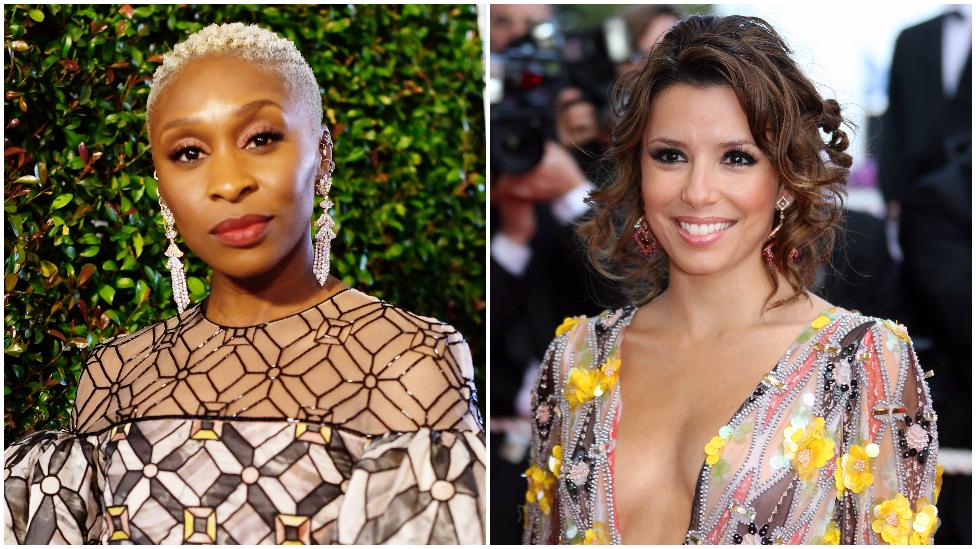
- Published10 February 2020
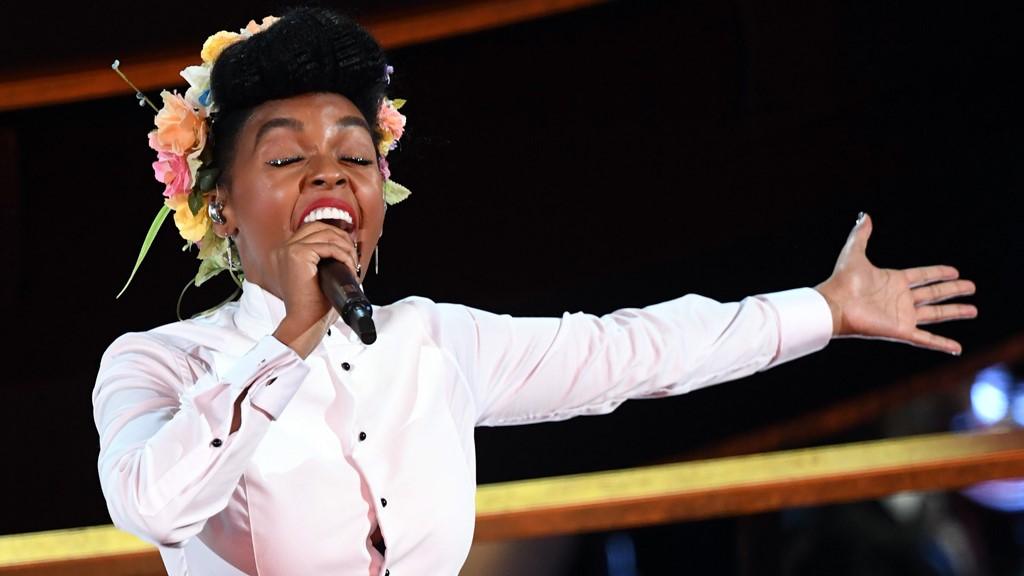
- Published6 February 2019

- Published26 June 2018
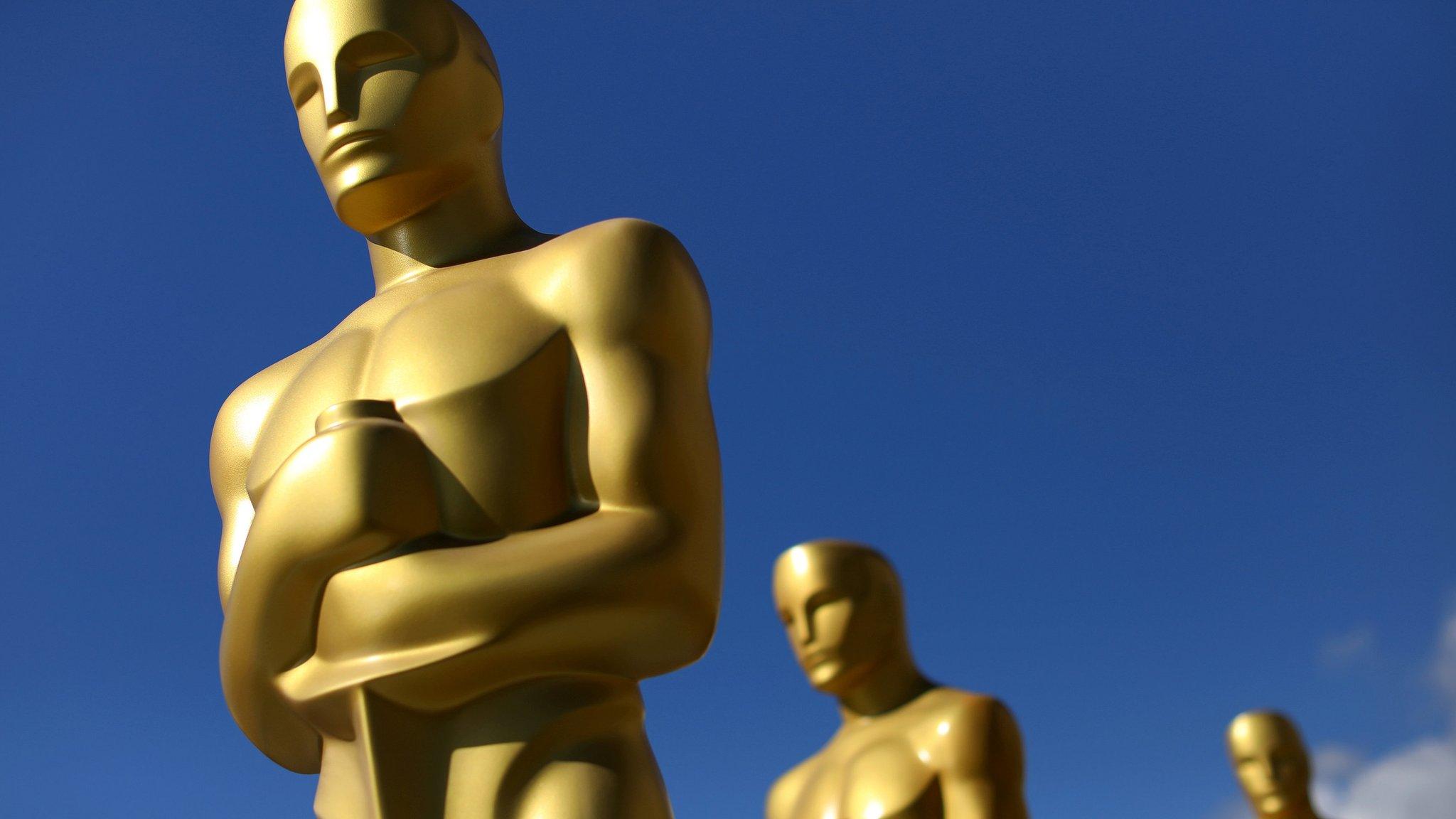
- Published25 February 2017
